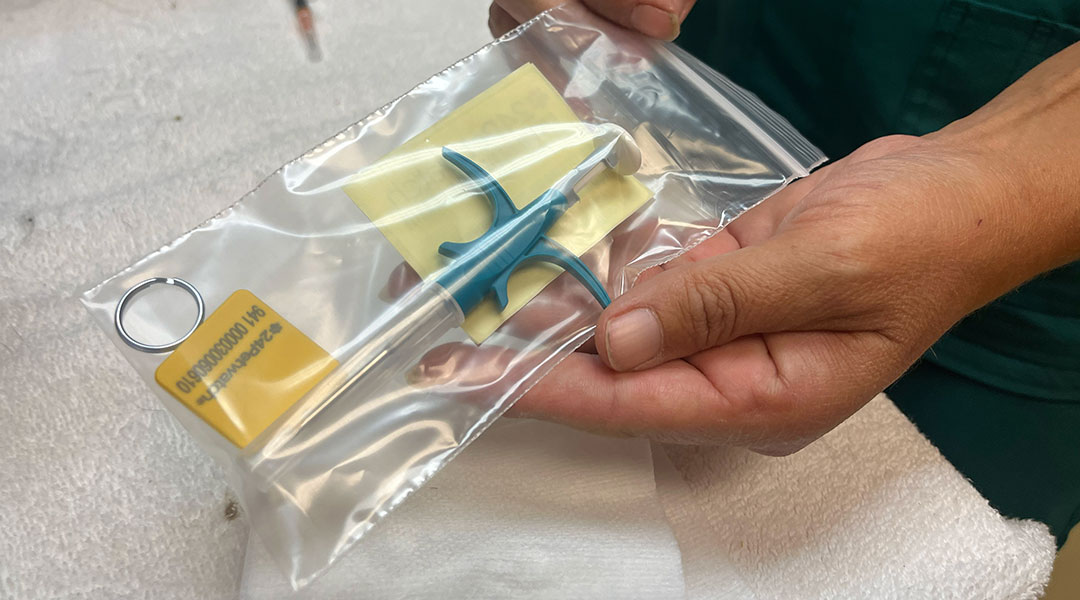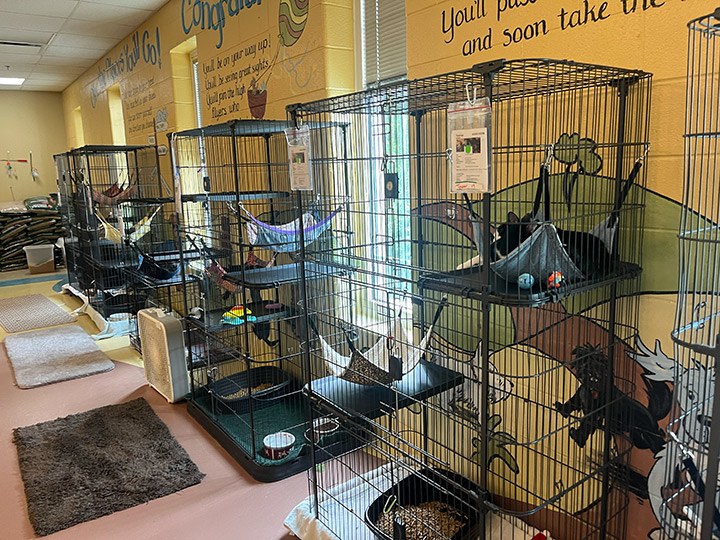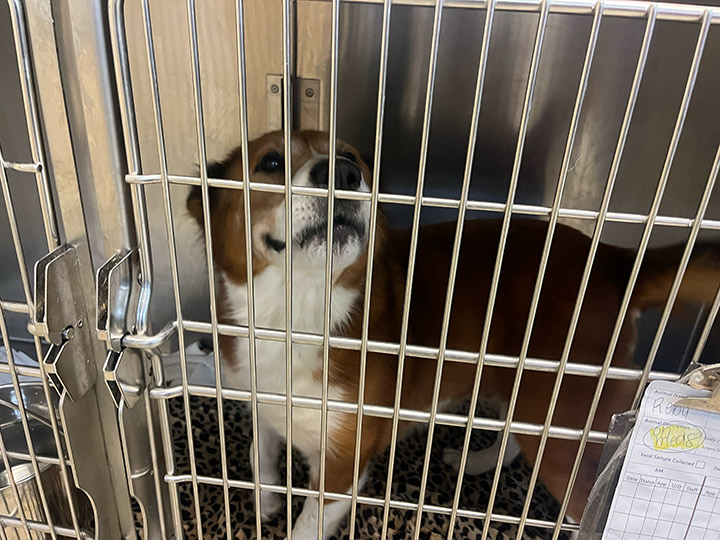A microchipping set at Pawmetto Lifeline (Photo by Macaila Bogle/Carolina News & Reporter)
Gavin Smith spoke out against a Lexington town ordinance on Aug. 5, but just a month later changed his mind.
Lexington County passed an ordinance that requires all pets to be microchipped. On Sept. 3, the town of Lexington adopted the same ordinance. Smith, a Lexington Town Council member elected in May 2023, said since the town uses the county’s animal services, the council “didn’t have much of a choice.”
By Sept. 3, Smith voted in favor of the ordinance but said he wasn’t entirely happy.
“I don’t really think that the government should ever tell you what to do with your own property,” Smith said. “I believe in personal liberties, and, you know, I felt like this encroached a little bit on that.”
But there isn’t a lot to worry about when it comes to microchipping, said Brandon Fancy, a junior public relations student at USC and a Columbia Animal Services technician.
“It’s one of those wonders that it’s a simple thing,” he said. “Its implant takes five seconds. People constantly ask, ‘Oh, that was it?’ It’s as simple as the needle is in, push and done. And I can understand not wanting to put your dog through that. But anything other than that, it’s an identification process for that dog.”
One of the main benefits of microchipping is to help owners find their lost pets. If unmicrochipped pets are lost for a while, they could be stuck in a shelter with no one knowing who they are.
“You’re not going to keep searching the shelter, you know, every week until Jesus comes,” Fancy said. “But then that dog comes in eventually. And so if we have no way to tie you to that dog, and you’re not searching anymore … that can be a two-month process where that dog could have just gone home.”
If a dog is microchipped, there’s a 70% chance of it going home, according to Denise Wilkinson, CEO of nonprofit shelter Pawmetto Lifeline. If it’s not, there’s a 90% chance it’s not going home.
Wilkinson said if pets end up in crowded municipal shelters, they might eventually be euthanized. As more animals go into the shelters, more animals have to be put down.
“It’s having to pick and choose every single day. ‘Okay? We had 15 come in today. I’ve got to go select 15 to die today,’” Wilkinson said.
She said one of the most important ways to improve the situation is to see more community involvement, something that can be more demanding than some people hope.
“We often hear people go, ‘I rescued that dog.’ I’m like, ‘No, you didn’t. You transported it from the side of the road to Pawmetto Lifeline,’” Wilkinson said. “If you really want to be a part of the no kill equation, then you’ve got to participate.”
Wilkinson said Pawmetto Lifeline offers many programs to help the community be a part of the solution. They include spay and neutering programs, free microchipping programs for pitbulls, which are hard to place in homes, and Care-A-Van, a mobile vaccine program that works to help keep vet expenses down.
The Columbia Animal Shelter also microchips.
Wilkinson said Pawmetto Lifeline is proud of the new change in Lexington County. She said it will be a great help to the overcrowding crisis.
“We’re pushing for mandatory spay/neuter in Lexington, Richland and the city of Columbia,” Wilkinson said. “But so far, we haven’t gotten the support that we need. But we really want mandatory spay/neuter and microchipping. I don’t really understand why people are against it.”
Columbia and Richland County do not require microchipping, but they do require pet licensing, the linking of a pet and its owner through an online form. Wilkinson said she would like to see that change.
She said at the end of the day, ordinances like these are important, no matter how residents feel about it.
“In South Carolina, people go, ‘It’s my property. You don’t tell me what to do with my property,’” she said. “But when it’s costing taxpayers millions of dollars to run these shelters that are euthanizing a high percentage of bully breeds, that’s also my business. Those are our tax dollars. I’d rather my money go to education or healthcare for children.”
Smith agreed.
“I certainly don’t have any interest in (creating) our own animal control division that’s costly to taxpayers,” he said. “I certainly would describe myself as very fiscally conservative. And I don’t think it will be a responsible use of taxpayer dollars to duplicate a service that the county is already fulfilling pretty well.”
Smith said even with the “heartburn” he feels over it, he thinks the ordinance serves a greater purpose.
“I hate to think about, you know, my dog being euthanized solely because the shelter is full and they can’t, you know, find me,” he said. “While I may feel it is a little bit of an overreach, it serves a good purpose.”
Fancy said the bottom line is that microchipping can change animals’ lives.
“‘What is the worst that could happen?” Fancy said. “And if my dog is not microchipped, how would that improve the situation? Microchipping 100%, all the time, improves that dog’s situation no matter what the worst is.”
Crates with adoptable cats line a wall of Pawmetto Lifeline. (Photo by Macaila Bogle/Carolina News & Reporter)
Precious, an adoptable dog at Pawmetto Lifeline, in her crate (Photo by Macaila Bogle/Carolina News & Reporter)
Clinic workers scan a new microchip in a freshly received kitten. (Photo by Macaila Bogle/Carolina News & Reporter)
Reba, an adoptable dog at Pawmetto Lifeline, in her crate (Photo by Macaila Bogle/Carolina News & Reporter)






